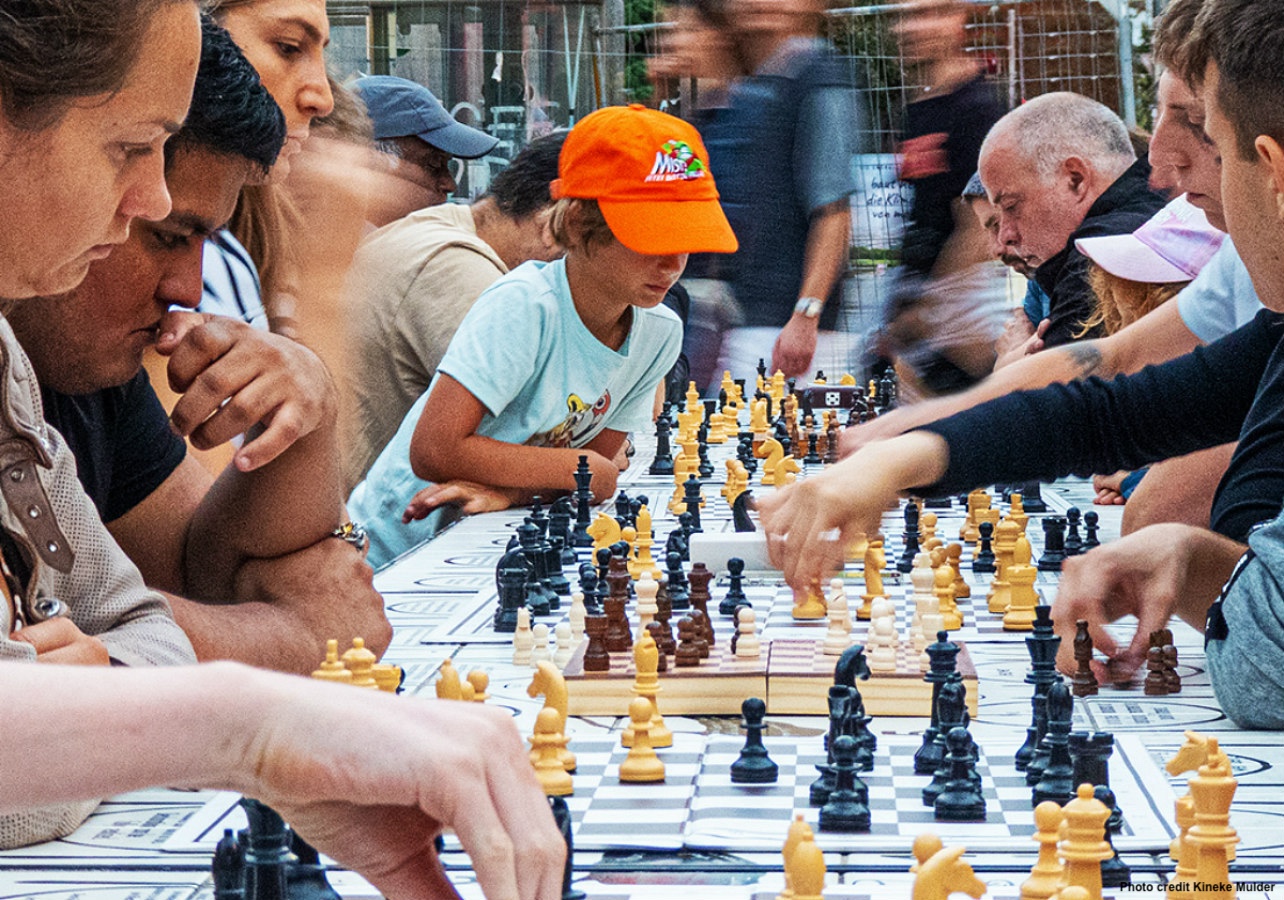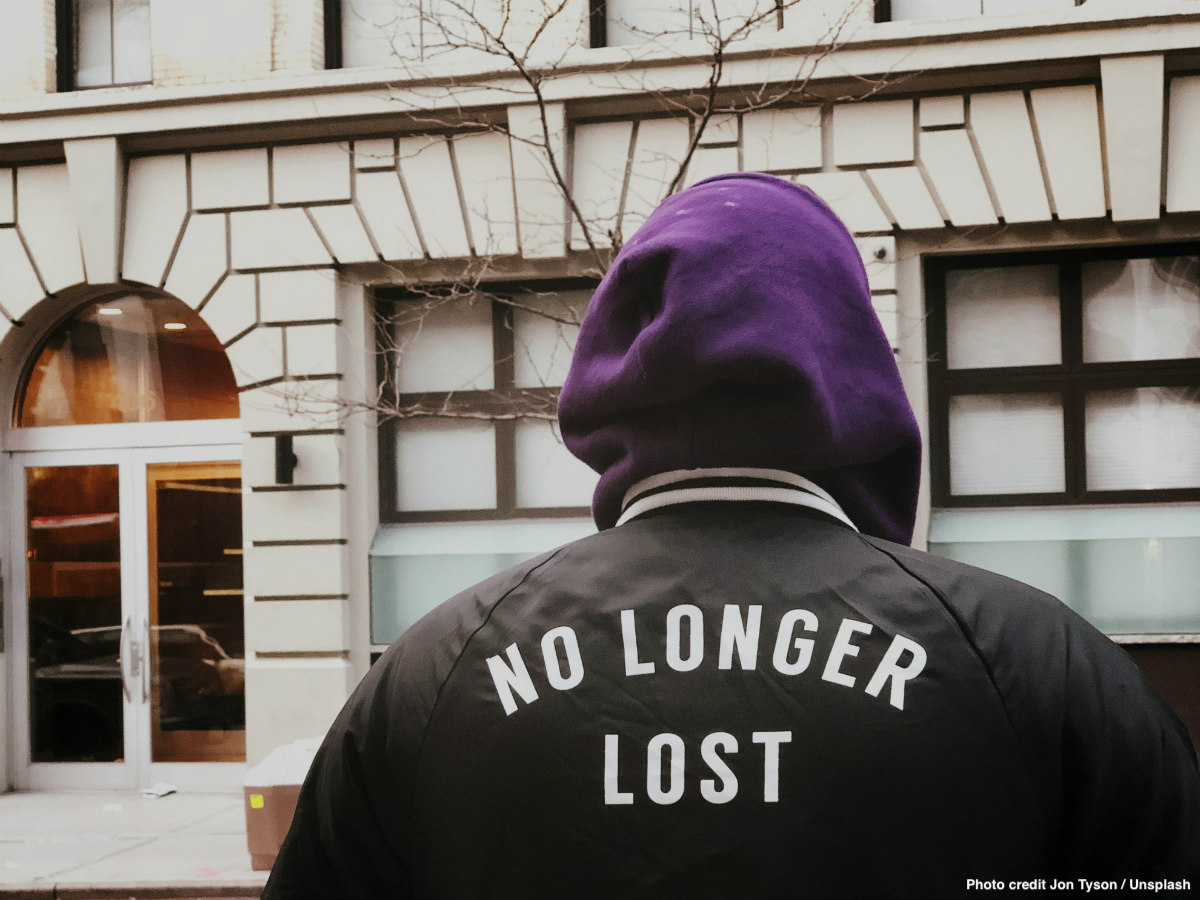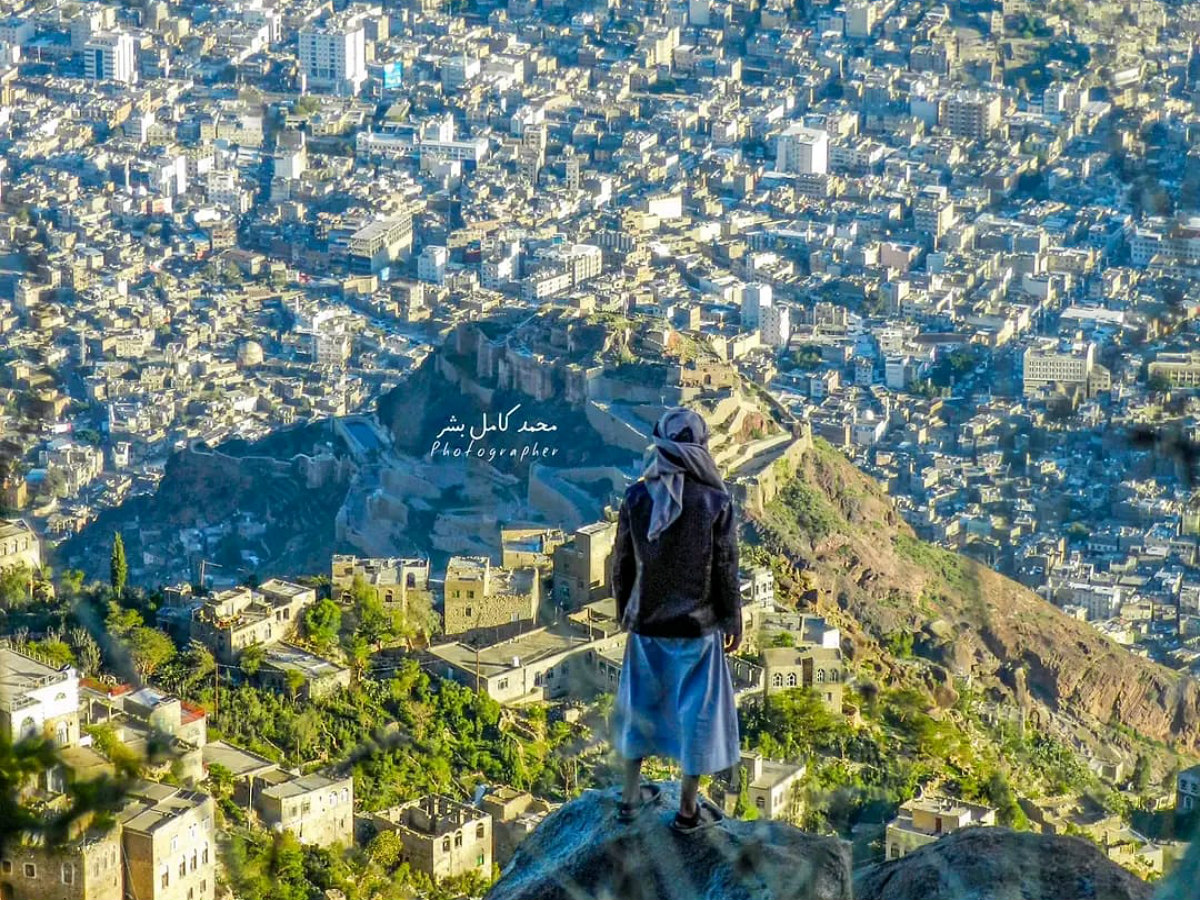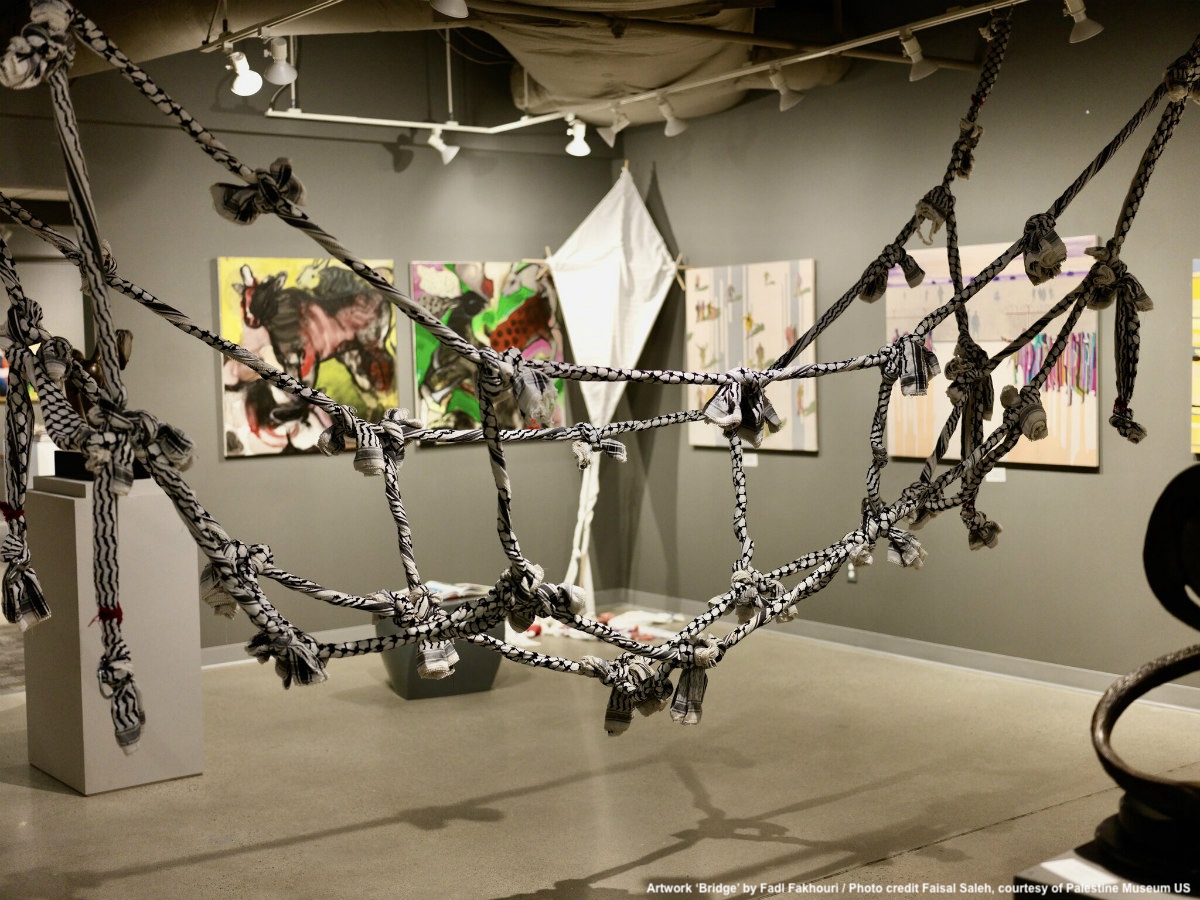The first time I met Kineke Mulder, in Vienna, she asked me how I was introduced to chess. I explained that I learned the rules from a regular guest at my father’s restaurant in Oviedo, who medalled in a simultaneous chess competition against former Soviet chess grandmaster Anatoki Karpov in 1981. He didn’t beat Karpov, but he was confident enough in his ability and knowledge to show me the way into the game.
To my surprise, Mulder found a picture of that historical moment in the chess culture of my hometown, and added it to my story, one of a long list of portraits that she regularly writes about chess players of various skills. Kineke Mulder is a veteran of the chess scene in Vienna, and has put together a wide array of chess events in Viennese coffeehouses, libraries, and on the streets of the capital.
So I’m sorry, Garry Kasparov (a Soviet political activist who has openly shown opposition to the Putin regime and happens to be a former chess grandmaster), but this time Google search got it wrong. If there is such a thing as a chess activist, Kineke Mulder is undoubtedly one – for her, chess itself is not the only endgame. Mulder distinctly uses the game of chess to provoke change and foster togetherness in Viennese society that she perceives has become too skewed towards individualism and polarization. And one could argue, so has everywhere else.
Born in the Netherlands, and working as a graphic designer with a small business in Vienna, Mulder launched the initiative Chess Unlimited in 2015, after an unexpected experience in the midst of the refugee crisis in Europe in that same year. “Sometimes you make that bold step which takes you on a greater journey,” she says. (In 2020, she was awarded The Sports Integration Prize in Austria.)
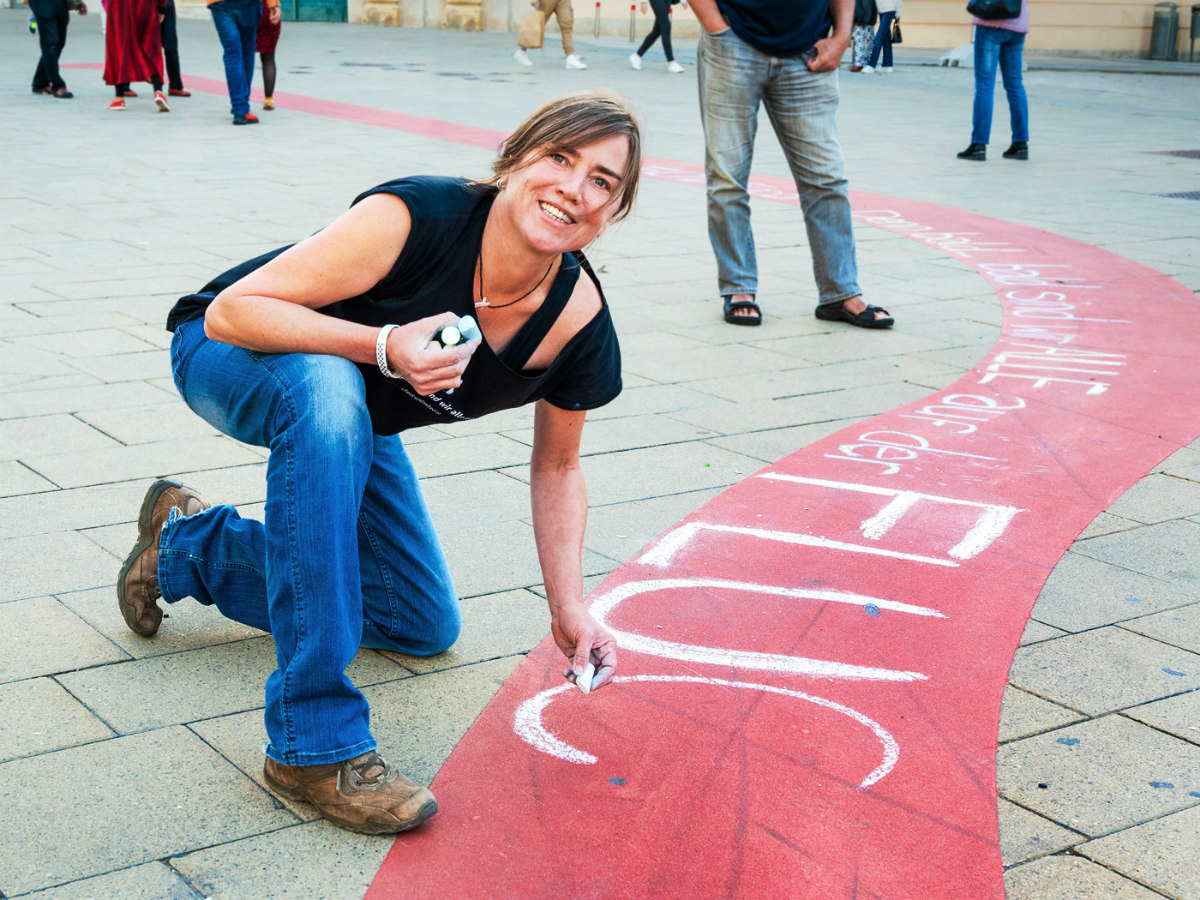
When the war in Syria escalated in 2015, hundreds of refugees arrived at the central station in Vienna completely exhausted and psychologically devastated. Volunteers welcomed them with water, food and all manner of essentials. But Mulder and a friend showed up with a couple of chess boards under their arms. They had hardly set up the pieces on one of the tables when people began playing.
Suddenly, what at first appeared to be odd, ended up being quite a canny idea. “A father sat completely immersed in the game, without worry lines on his face, perhaps for the first time in weeks or months – an expression that finally calmed his children down,” she remembers. Also, unaccompanied young refugees, who were experiencing untold anxiety, were finally able to focus and relax through the deep concentration that chess requires. “It was quite amazing to see how much positive energy playing chess can activate,” notes Mulder.
Since the experience at the central station in the midst of the refugee crisis, she took a step further and began organizing chess events so that migrant newcomers could play with locals; it grew from there.
There are all kinds of explanations for this magic. One of the most remarkable things about the game is the opportunity of the pawn, the least valuable piece, to metamorphose into the queen, the most powerful piece, if it makes it to the other edge of the board. So too can two or three pawns work together and start a little offensive against the king.
A chess match requires simultaneous fast and farsighted thinking, with a lot of problem-solving on the fly, because your opponent is constantly changing the parameters. Chess means foreseeing three to five moves ahead – although Kasparov once admitted he could go much deeper, as many as 12 or 14 moves. Chess requires looking into the future to win.
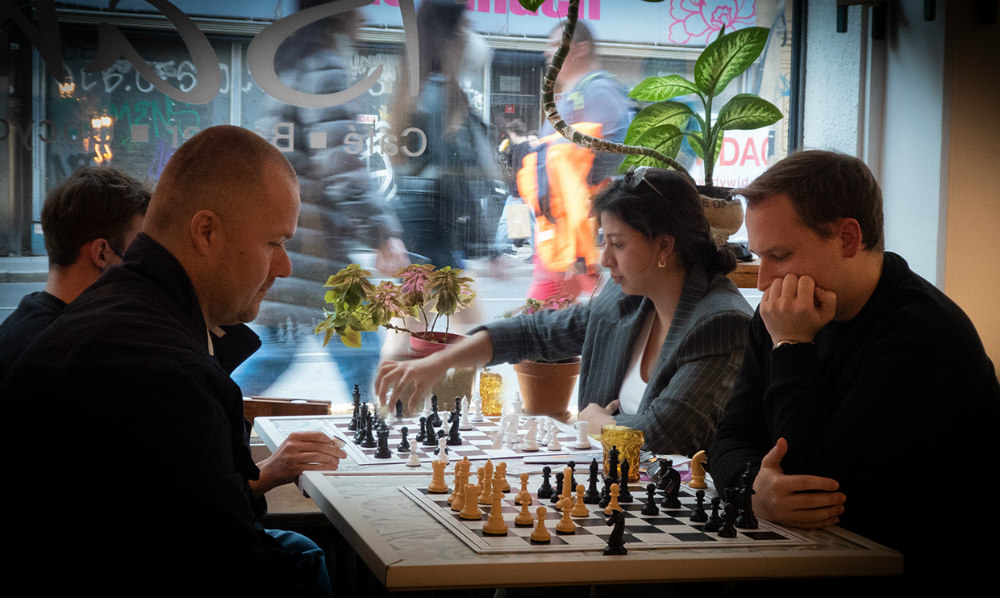
If this sounds fanciful, chess found its way into education programs as well as into the most unexpected places like prisons and slums, where people have absorbed those qualities of the game as a way to thrive. Mulder uses it as a “universal language” for heterogeneous social interaction. Her aim is to create moments through playing chess – moments when people from different ways of life, ethnicities and political beliefs intermingle and “hang out,” building a space for dialogue and mutual respect.
The idea is not new. By the mid-19th century, Vienna was a city of chess players, one of the world’s chess strongholds thanks to the emergence of the Viennese coffeehouses and the influx of diverse immigration into the city. All kinds of people, including writers, countless intellectuals and straight up chess enthusiasts met in the numerous cafés of the city to talk and play the game. An enviable chess culture drew talent from all parts of the Austrian Empire, promoted the exchange of ideas, fed the avant-garde in the Viennese coffee houses, and held the city together.
In March 1938, chess life in Vienna was sadly destroyed, with the annexation of Austria to the Greater German Reich. After the end of the Second World War, the coffee house culture gradually disappeared, and playing chess was even banned in the famous Café Museum, where chess players had pursued their hobby in the “Beethoven Room” for over a hundred years. Modernity and togetherness were replaced by polarization and division.
***
It’s Friday at 5pm and groups of two cluster around a table at Human Rights Square in Vienna, talking and pushing chess pieces back and forth. The atmosphere is relaxed, the location unbeatable. I tune in from Munich. Mulder is showing me around the busy square virtually via Whatsapp. A gentleman in a collared shirt sits at one end of the table on the right; he is Manfred, and lives in Lower Austria but comes here every Friday. Another guest arrives. “Hey Sumsi,” waves in Mulder. “This is my second guest who comes all the way from Lower Austria to Vienna,” she says with a smile, and brings them both into view on my screen. While I greet them, Mulder is briefly off-camera setting the chess clock. Mulder’s hand can be seen everywhere — something which, no doubt, encourages people to show up even on a rainy day like this one.
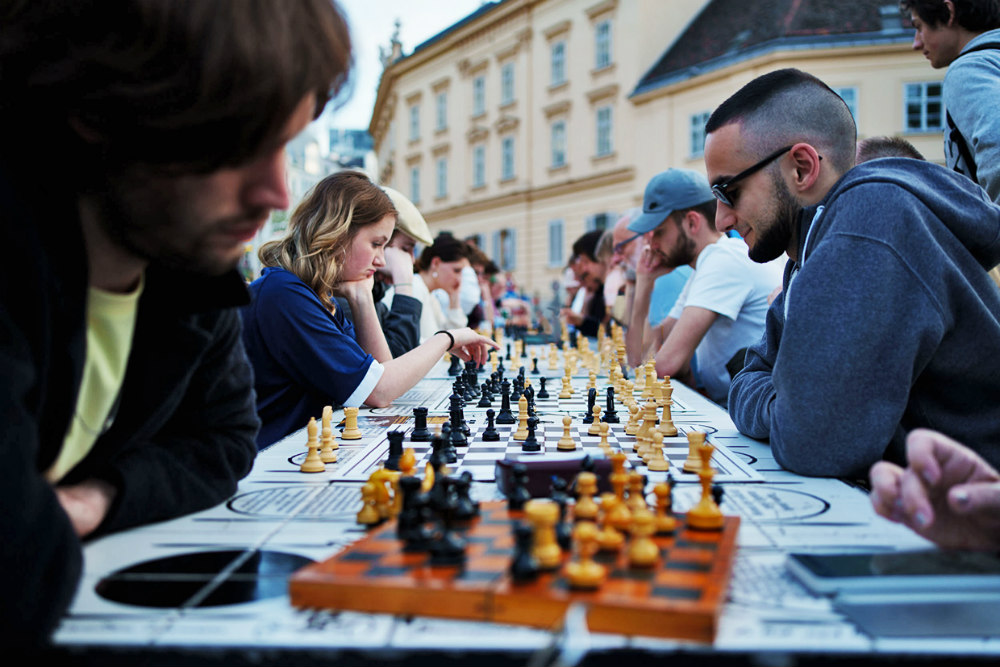
In 2019, at this same Human Rights Square, near the Museumsquartier in the center of Vienna, the Belgian artist Françoise Schein produced a ten-meter-long banquet table with benches all arranged in parallel and cemented to the ground. The table is covered with ceramic tiles, each featuring one of the 30 articles of the 1949 Universal Declaration of Human Rights, on a handmade plate, in English and German. This permanent piece of art, lying atop a jumbo-sized red question mark painted on the ground, raises public awareness about fundamental human rights issues, and creates a space for negotiation, exchange, and dialogue.
“It’s just great luck that we can use this table for our chess encounters. It also reminds us that we, the people, are the guardians of human rights, and we should always think about whether they are taken into account and respected everywhere,” says Mulder. Not far from where she’s standing, she points to a sculpture dedicated to Marcus Omofuma, a Nigerian asylum seeker in Austria whose death became a symbol for anti-racist movements and activists in Austria. “Omofuma died due to police brutality while being deported on a plane. They gagged him so hard that he suffocated,” Mulder reports. After a mild punishment, the police officers were allowed to continue in their positions.
And then, with a smile on her face again, she points to a pop-up booth not far from the table, where LGBTQ advocates are campaigning for their rights. “This square is just extremely busy. Often there are different events and demonstrations. Here the flâneurs, the tourists pass by. It’s just perfect for us,” says Mulder.
Recently, a woman told Mulder that the city of Vienna has actually opened up for her through Chess Unlimited. Suddenly there were places where she could go, play, and make friends. She even got a new job through one of her new chess friends. Newcomers in Vienna say that they have benefited from Chess Unlimited to improve their German. Mulder pauses to wave at another chess player, Iryna, an Ukrainian artist who moved to a town not far from Vienna and always comes to the city to play. “She once told me, ‘You know, Kineke, when I play chess at these encounters, I don’t have a headache’,” says Mulder.
Then Mulder points out to me, from far away, another chess guest, this time a professional dancer. Over the chessboard, she met a cameraman, who’s also a filmmaker, and ended up performing in one of his films. Through playing, people build a network and help each other,with small everyday tasks such as finding an apartment and larger, long-term projects.
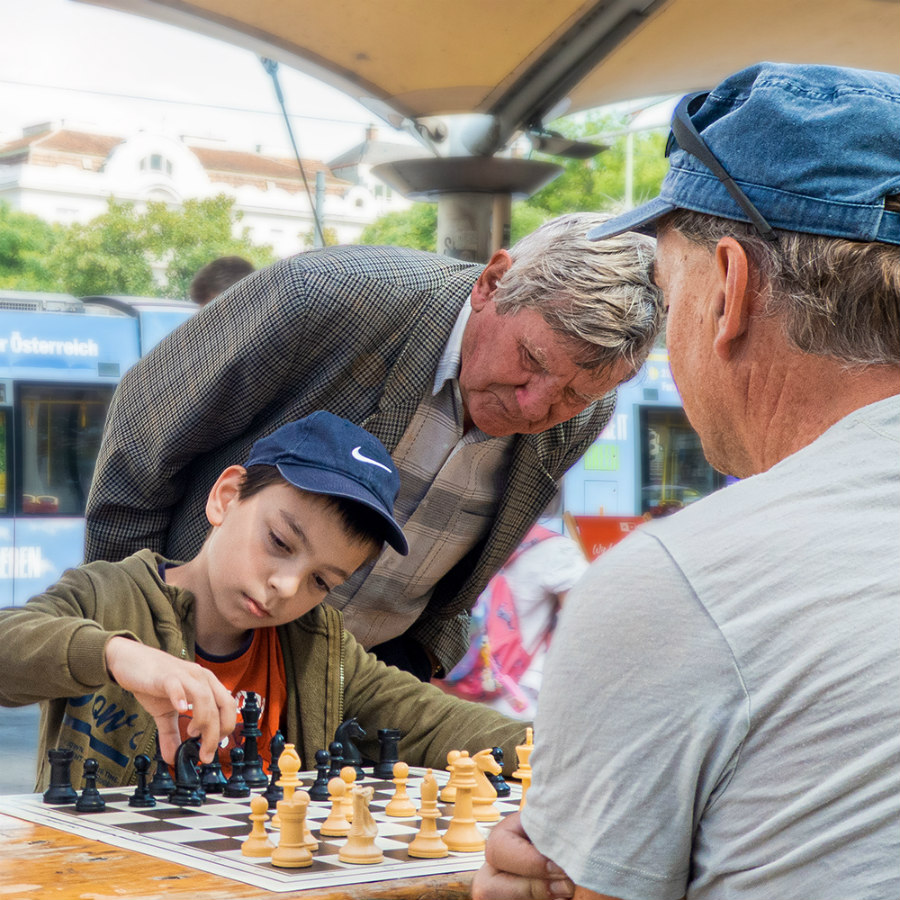
For senior people, chess is often a way to just socialize again; as in cities across the globe, elderly loneliness is an acute problem in Vienna. “At times you can tell that some people have been alone for a very long time,” laments Mulder. There was that moment when she greeted a man who came several times to a chess event at one of the coffee houses. “So I’m standing there and he comes by, and I greet him by using his name. And then he turns around and has this strange look on his face. She thinks, ‘Huh? Did I say something wrong?’ But he replies, ‘you remembered my name!’ “It was so beautiful. You suddenly realize that some people just haven’t heard their own name for a long time.”
True to its name, Chess Unlimited also reaches a young generation, producing unexpected side effects. There is this 13-year-old boy who was playing for a long time, and at the end of the chess event thanked Mulder for the incredible experience of playing with real people instead of the mobile phone.
I ask Mulder if the current conflicts in Ukraine and the Middle East call for a more delicate diplomacy among the people who gather to play chess. But she says that, even now, arguments among players are rare. “There’s a funny thing that I’ve learned over time, a great trick about the game. When a discussion comes up and the topic is too sensitive, or chess players notice that they are completely on the other side of politics from their opponent, they focus on their next move. It’s a kind of security zone, on both sides,” she explains.
During the Covid-19 pandemic, when people were allowed to play outside again, every now and then there were some players who were against vaccination. Once, one of these non vaccinated people suddenly stood up and went to the vaccination bus close to the square and got the shot. But why? I ask. Did the other players or his opponent persuade him? Mulder replies that, “I think, after this person was sitting for a few weeks among a lot of people who had been vaccinated and tolerated it, it took a toll on him. Perhaps something ‘clicked’ in his head. People are complex, we don’t decide something completely rational or just based on what your guts tell you.” Perhaps exposure to all kinds of people opens our minds, and encourages our best selves.
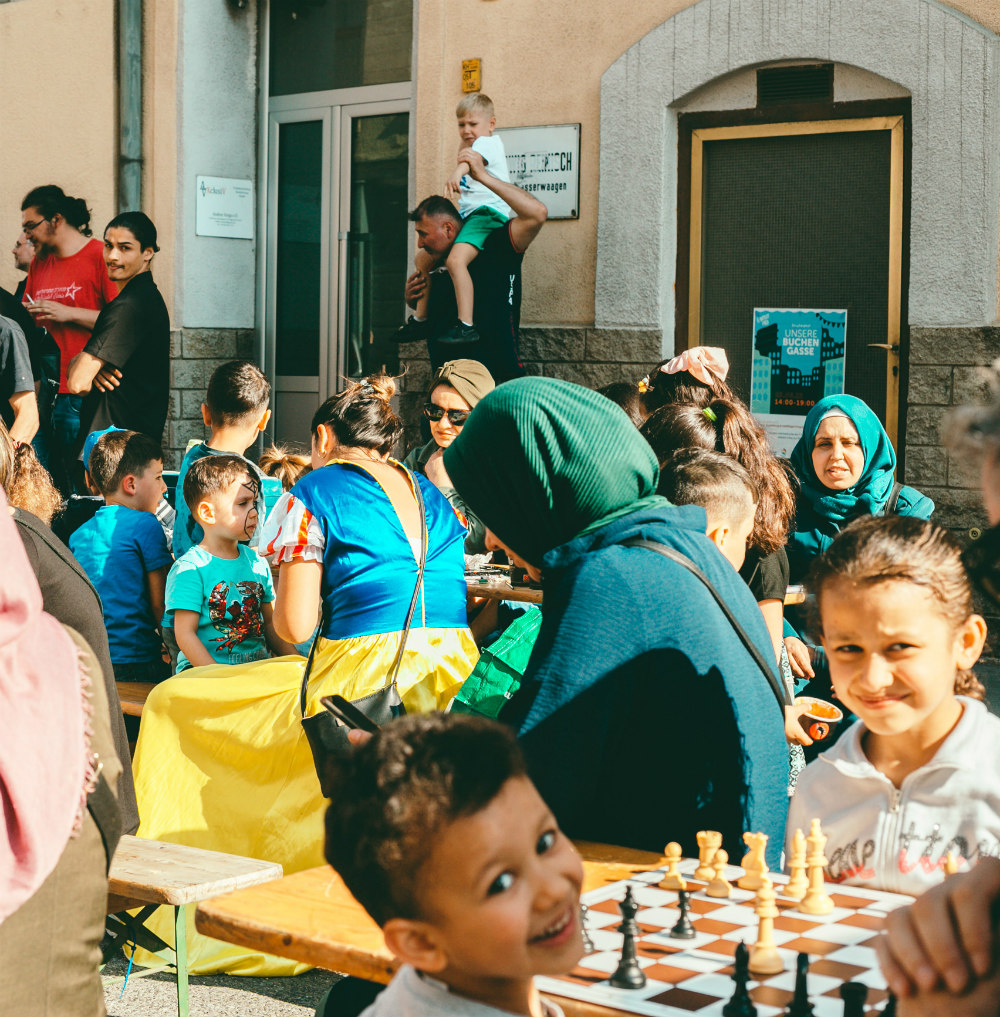
***
Tolerance has been the starting point of Mulder as a chess activist. Already at the age of six she learned the rules of chess, impressed by her mother’s friend who was so passionate about the game. She used to play in a chess club among much older people. But she was tolerated. And just like her tolerant elders, Kineke understood the deeper meaning of chess early on, which made her so passionate about the game. Moving to Vienna also helped.
Michael Ehn, an Austrian bookretailer and chess historian, captures this unique situation in the history of the city in his book Geniales Schach im Wiener Kaffeehaus 1750-1918 (in English, Ingenious Chess in the Viennese Coffee House 1750-1918) that brought together “the most significant scientists, rich patrons, simple chess friends and grandmasters of the game at the chessboard.”
And here we are again. With the rise of polarization and division, Mulder fills with play the vacuum left by the individualism and anonymity of the city, nurturing the indispensable participation in civic life. Philosopher and journalist Julian Baggini once wrote that “the city that plays together, stays together.”
I ask Mulder if she also does what she does for the pure love of chess, to which she quickly corrects me, “It’s love for people.” Her engagement doesn’t come as a surprise to me. In chess, the king has to survive in order to win the game but it is the queen, the most important piece in chess, who does all the great moves.
